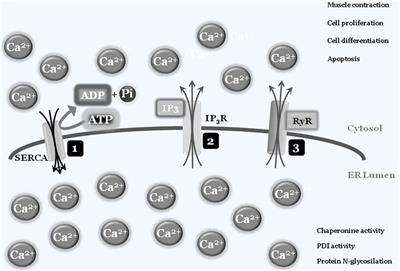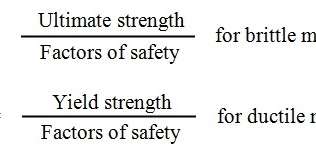What is Psychotherapy?
Learn about psychotherapy.
Psychotherapy, or talk therapy, is a way to help people with a broad variety of mental illnesses and emotional difficulties. Psychotherapy can help eliminate or control troubling symptoms so a person can function better and can increase well-being and healing.
Problems helped by psychotherapy include difficulties in coping with daily life; the impact of trauma, medical illness or loss, like the death of a loved one; and specific mental disorders, like depression or anxiety. There are several different types of psychotherapy and some types may work better with certain problems or issues. Psychotherapy may be used in combination with medication or other therapies.
Therapy Sessions
Therapy may be conducted in an individual, family, couple, or group setting, and can help both children and adults. Sessions are typically held once a week for about 30 to 50. Both patient and therapist need to be actively involved in psychotherapy. The trust and relationship between a person and his/her therapist is essential to working together effectively and benefiting from psychotherapy.
Psychotherapy can be short-term (a few sessions), dealing with immediate issues, or long-term (months or years), dealing with longstanding and complex issues. The goals of treatment and arrangements for how often and how long to meet are planned jointly by the patient and therapist.
Confidentiality is a basic requirement of psychotherapy. Also, although patients share personal feelings and thoughts, intimate physical contact with a therapist is never appropriate, acceptable, or useful.
Psychotherapy and Medication
Psychotherapy is often used in combination with medication to treat mental health conditions. In some circumstances medication may be clearly useful and in others psychotherapy may be the best option. For many people combined medication and psychotherapy treatment is better than either alone. Healthy lifestyle improvements, such as good nutrition, regular exercise and adequate sleep, can be important in supporting recovery and overall wellness.
Does Psychotherapy Work?
Research shows that most people who receive psychotherapy experience symptom relief and are better able to function in their lives. About 75 percent of people who enter psychotherapy show some benefit from it.1 Psychotherapy has been shown to improve emotions and behaviors and to be linked with positive changes in the brain and body. The benefits also include fewer sick days, less disability, fewer medical problems, and increased work satisfaction.
With the use of brain imaging techniques researchers have been able to see changes in the brain after a person has undergone psychotherapy. Numerous studies have identified brain changes in people with mental illness (including depression, panic disorder, PTSD and other conditions) as a result of undergoing psychotherapy. In most cases the brain changes resulting from psychotherapy were similar to changes resulting from medication.2
To help get the most out of psychotherapy, approach the therapy as a collaborative effort, be open and honest, and follow your agreed upon plan for treatment. Follow through with any assignments between sessions, such as writing in a journal or practicing what you’ve talked about.
Types of Psychotherapy
Psychiatrists and other mental health professionals use several types of therapy. The choice of therapy type depends on the patient’s particular illness and circumstances and his/her preference. Therapists may combine elements from different approaches to best meet the needs of the person receiving treatment.
- Cognitive behavioral therapy (CBT) helps people identify and change thinking and behavior patterns that are harmful or ineffective, replacing them with more accurate thoughts and functional behaviors. It can help a person focus on current problems and how to solve them. It often involves practicing new skills in the “real world.” CBT can be helpful in treating a variety of disorders, including depression, anxiety, trauma related disorders, and eating disorders. For example, CBT can help a person with depression recognize and change negative thought patterns or behaviors that are contributing to the depression.
- Interpersonal therapy (IPT) is a short-term form of treatment. It helps patients understand underlying interpersonal issues that are troublesome, like unresolved grief, changes in social or work roles, conflicts with significant others, and problems relating to others. It can help people learn healthy ways to express emotions and ways to improve communication and how they relate to others. It is most often used to treat depression.
- Dialectical behavior therapy is a specific type of CBT that helps regulate emotions. It is often used to treat people with chronic suicidal thoughts and people with borderline personality disorder, eating disorders and PTSD. It teaches new skills to help people take personal responsibility to change unhealthy or disruptive behavior. It involves both individual and group therapy.
- Psychodynamic therapy is based on the idea that behavior and mental well-being are influenced by childhood experiences and inappropriate repetitive thoughts or feelings that are unconscious (outside of the person’s awareness). A person works with the therapist to improve self-awareness and to change old patterns so he/she can more fully take charge of his/her life.
- Psychoanalysis is a more intensive form of psychodynamic therapy. Sessions are typically conducted three or more times a week.
- Supportive therapy uses guidance and encouragement to help patients develop their own resources. It helps build self-esteem, reduce anxiety, strengthen coping mechanisms, and improve social and community functioning. Supportive psychotherapy helps patients deal with issues related to their mental health conditions which in turn affect the rest of their lives.
Additional therapies sometimes used in combination with psychotherapy include:
- Animal-assisted therapy – working with dogs, horses or other animals to bring comfort, help with communication and help cope with trauma
- Creative arts therapy – use of art, dance, drama, music and poetry therapies
- Play therapy – to help children identify and talk about their emotions and feelings
Finding and Choosing a Psychotherapist
Psychotherapy can be provided by a number of different types of professionals including psychiatrists, psychologists, licensed social workers, licensed professional counselors, licensed marriage and family therapists, psychiatric nurses, and others with specialized training in psychotherapy. Psychiatrists are also trained in medicine and are able to prescribe medications.
Finding a psychiatrist or other therapist with whom an individual can work well is important. Sources of referrals include primary care physicians, local psychiatric societies, medical schools, community health centers, workplace Employee Assistance Programs (EAP), and online resources (see links to online locators below).
Federal law requires that in most cases mental health services, including psychotherapy, be covered by health insurance similar to other medical care costs. (Read more about insurance coverage of mental health care)
Online Locators for Psychotherapy/Counseling:
References
- American Psychological Association. Understanding psychotherapy and how it works. 2016.
- Karlsson, H. How Psychotherapy changes the Brain. Psychiatric Times. 2011.
- Wiswede D, et al. 2014. Tracking Functional Brain Changes in Patients with Depression under Psychodynamic Psychotherapy Using Individualized Stimuli. PLoS ONE. 2014.http://journals.plos.org/plosone/article?id=10.1371/journal.pone.0109037
Physician Review
Ranna Parekh, M.D., M.P.H.
Lior Givon, M.D., Ph.D.
January 2019
![]()
Mental health counseling isn’t just for people who struggle with mental health, but for anyone who has concerns about mental health at any given time. Whether you have stress in your life, problems with a relationship, or anything else that weighs on your mind, you can benefit from mental health counseling.
The counseling process is like an educational experience. The patient learns more about him/herself and gains new skills. Counseling also sometimes includes learning about certain conditions such as depression, eating disorders, and anxiety so that one can understand the treatment options.
What Are The 8 Benefits of Mental Health Counseling?
- Improved communication and interpersonal skills
- Improved self-acceptance and self-esteem
- Capability to change self-defeating behaviors and habits
- More suitable expression and management of emotions
- Relief from depression, anxiety, or other mental health conditions
- Greater confidence and decision-making skills
- Ability to manage stress more effectively
- Improved abilities for problem-solving and conflict resolution
Why You Should See a Counselor
Psychological or personal mental health counseling gives you the chance to talk about social, emotional, or behavioral problems that are causing you concern or interfering with your daily activities.
There are many reasons for seeking personal or psychological counseling. Some of the most common problems people go for help include:
- Difficulty concentrating or completing work or academic tasks
- Family or relationship problems
- Self-defeating behaviors and habits such as procrastination
- Issues due to grief and loss
- Problems with stress-management
- Coping with traumatic events
- Domestic violence or sexual assault
- Depression or lack of motivation
- Acute panic attacks or anxiety
- Problems with medication management
- Anger problems
- Sexual worries
- Compulsive behaviors
How Mental Health Counselors Help
It takes a trained, professional mental health counselor, also known as a therapist, to guide you through that journey. Mental health counselors provide an important and necessary system for people who want to recover from eating disorders, gambling, and other behavioral disorders. They build relationships with their patients that aren’t based on trust.
Sometimes just being able to talk about your problem helps you see a solution more clearly. Your counselor is trained to ask certain questions to help you discover a solution on your own. This way, you will have the tools you need to find solutions on your own outside of counseling. Counselors provide support, resources, confidentiality, and judgment-free guidance.

Common Therapies Used in Mental Health Treatment
Several common evidence-based therapies have proven to be immensely effective. They are used in virtually every treatment program that has experienced, trained counselors to implement them. These are included:
1. Group vs. Individual Therapy
Individual therapy, also called psychotherapy, is a collaborative process between the therapist and the patient. A trained therapist can help you discover the underlying causes of your thoughts and behaviors and make positive lifestyle changes.
Individual therapy can be a great help to you if you have depression, bipolar, or another serious mental health disorder that needs to be treated on its own. Some people find it’s helpful to participate in individual and group therapy.
Group therapy is usually preferred over individual therapy. Therapy sessions typically consist of one or more therapists and 5 to 15 group members. During group therapy, you are more likely to be challenged and supported by your peers in the group.
Group therapy helps you put your problems into perspective. Listening to others regularly helps you speak openly about your issues and realize that you are not the only person with problems.
Observing how the other people in group therapy handle problems and make changes in their lives helps you learn new strategies for your own issues. Many groups are formed to address a certain problem such as depression, chronic pain, or obesity. Still, others are focused on improving social skills.
2. Cognitive-Behavioral Therapy (CBT)
Basically, CBT is a “talk-therapy” that explores the differences between what you want to do and what you actually do. Nobody wants to develop a behavior disorder. CBT is an effective goal-oriented and short-term treatment that takes a matter-of-fact approach to problem-solving. It is used on a variety of issues.
Cognitive-behavioral therapy highlights the behavior and thought patterns (cognition) the patient has. Using this method the patient begins to understand how their negative thoughts and attitudes directly affect their behaviors.
The goal is to adjust the patterns of thinking or behavior that led to the patient’s problems. This is done by targeting the thoughts, images, beliefs, and attitudes the patient has and the relationships that have caused them to behave in certain ways to deal with their emotional problems. Once you have identified the relationship between your problems, behavior, and thoughts, you can begin to learn ways to cope and manage your thoughts and emotions during and after treatment.
3. Family Therapy
Family therapy is psychological counseling that helps family members enhance communication skills and resolve conflicts. Relationships are examined as family members try to understand the experiences of all the other members.
The goal of family therapy is to bring transparency to the relationships and encourage closeness if the members choose to. The most important parts of family therapy are:
- Engagement—Family engagement interventions typically take place during the first stage of treatment.
- Reframing relationships—This consists of interventions designed to transition from defining a problem in individual ways to producing solutions based on relationships and understanding.
- Behavior change—The goal is to shift the behavior of the family members by teaching them new skills and bolstering individual changes in behavior.
- Restructuring—The goal is to change the way the family system is directed, adjust basic beliefs and family rules.
4. Dialectical Behavioral Therapy (DBT)
Initially, DBT was developed to treat borderline personality disorder (BPD). Research subsequently showed that it is effective in treating bulimia, binge-eating, depression, SUD, and bipolar disorder.
DBT is another type of cognitive-behavioral treatment originally to treat BPD. People with BPD typically have extreme, intense, negative emotions that are difficult to manage and frequently appear while interacting with other people, including personal relationships.
Normally, DBT consists of individual therapy sessions with your counselor and DBT skills groups. The therapist keeps you motivated to apply the DBT skills to your everyday life and discuss any problems that might arise during treatment
DBT skills:
Participants in the skills group learn and practice DBT skills, share their experiences, and provide support for the other members. Patients learn to develop the skills necessary to manage their emotions and reduce conflict in relationships. Skills are developed in four areas:
- Mindfulness—Improving the patient’s ability to be “in the moment.”
- Distress tolerance—helps improve the patient’s tolerance of negative emotions rather than trying to escape.
- Regulation of emotion—Learning to manage intense emotions that are causing difficulties.
- Interpersonal capability—Learning techniques that allow the patient to communicate with others in an assertive manner that maintains self-respect.
5. Contingency Management Therapy (CM)
In this behavioral therapy approach, you receive positive incentives. Patients are “reinforced”, or rewarded for evidence of positive changes in their behavior.
CM is based on principles of basic behavioral analysis. Behavior that is reinforced close to the time it occurred will increase in frequency. Contingency management is used in everyday settings as well as in clinical settings. It is highly effective for the treatment of behavior disorders. CM interventions can be used in psychiatric treatment to increase abstinence in patients with dual diagnoses and to encourage attendance at mental health treatment sessions.
6. Motivational Interviewing
Motivational interviewing is a counseling method that helps you resolve conflicting feelings and insecurities to find the motivation necessary for you to change your behavior. It is a short-term process that recognizes how hard it is to make changes to your life.
It’s often used as a therapy for behavior disorder and management of physical health conditions such as heart disease, diabetes, and asthma. Motivational interviewing helps you change the behavior that prevents you from making healthy choices.
Research shows that this method works well with people who start unmotivated or unprepared to make changes. In a supportive demeanor, the interviewer’s role is to encourage the patient to talk about their need for change and their reasons for wanting to change. And to induce a conversation about change and commitment.
It is a short-term therapy that requires just one or two sessions although it can be included with other longer-term therapies.
Begin Mental Health Counseling in Los Angeles Today!
You might just be feeling that something is not quite right and there’s nothing you can do about your mental health. And no one would understand if you told them. But at Montare Behavioral Health, we do understand. And we have an experienced, professional, and caring staff that will help you discover what that little problem that’s bothering you is. Our mental health counseling is designed with you in mind. Discover yourself and discover a fulfilling life. Don’t wait, contact us here.
References
www.webmd.com
www.hvcc.edu./cct/counseling/benefits.html
www.aphapsychiatry.com
www.psychologytoday.com



